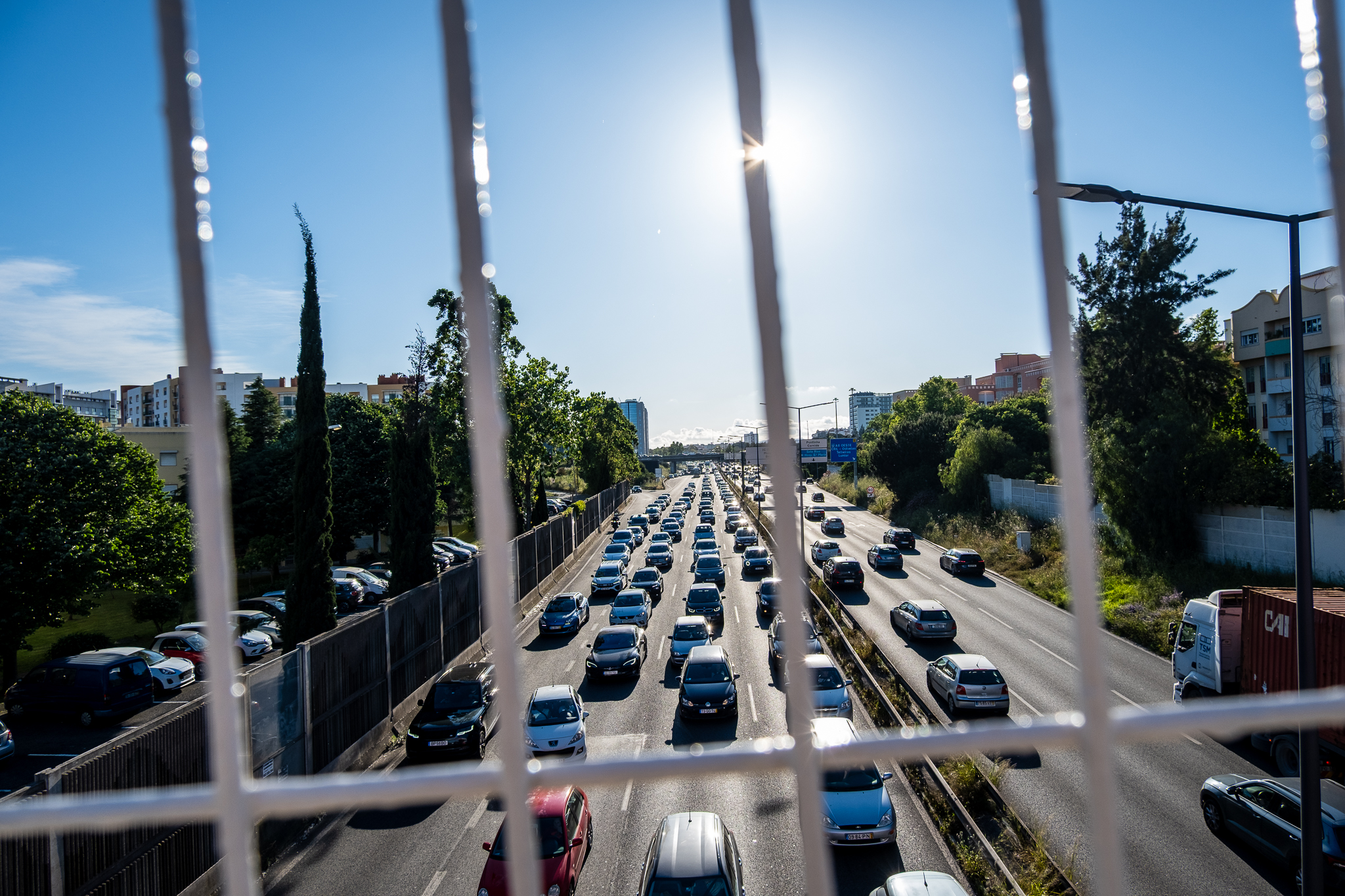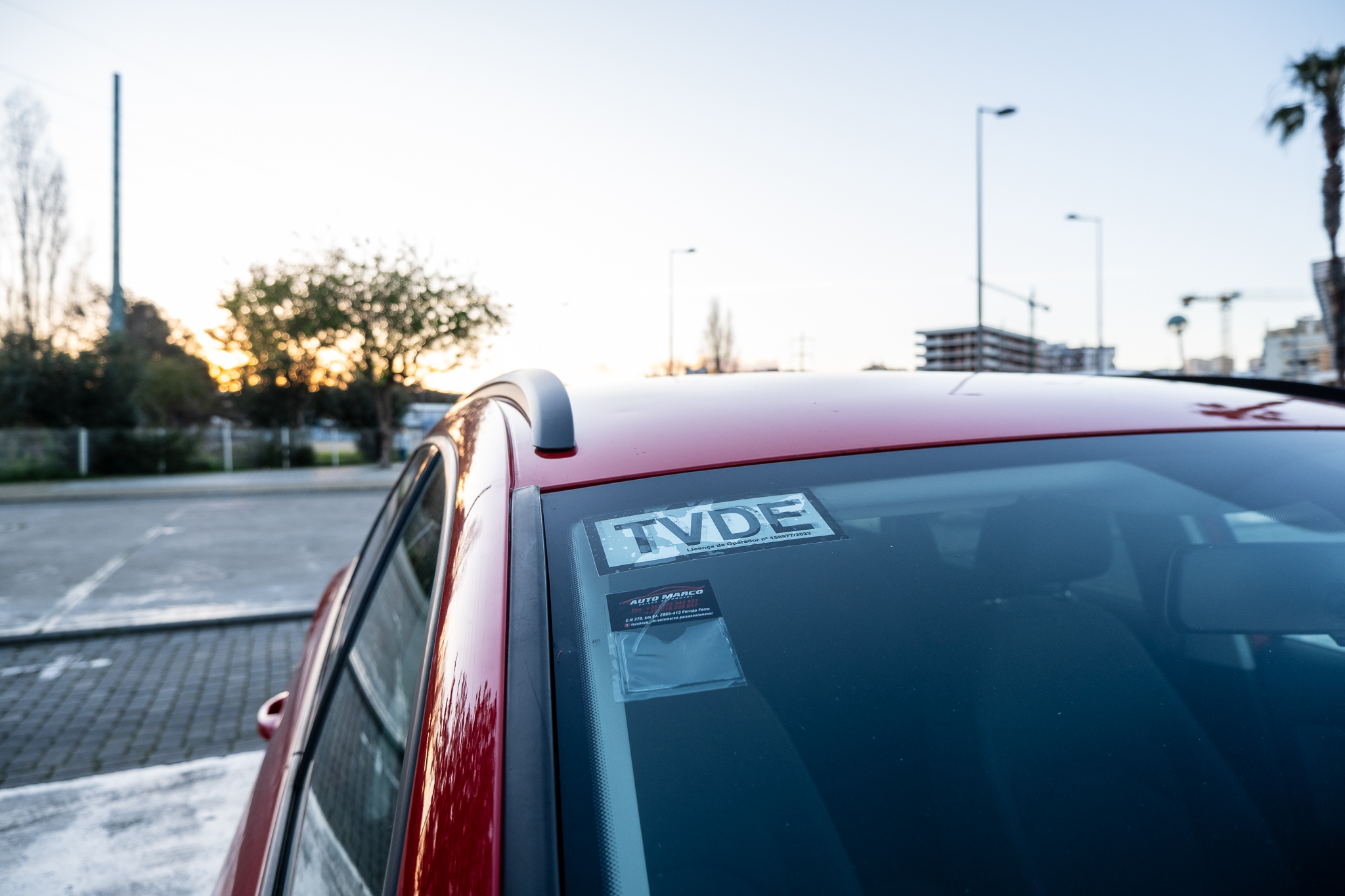Unlike other cities, Lisbon has been creating spaces for shared bicycles in pedestrian spaces, while trying to solve the existing conflicts with the occupation of sidewalks by these dockless bicycles and scooters.
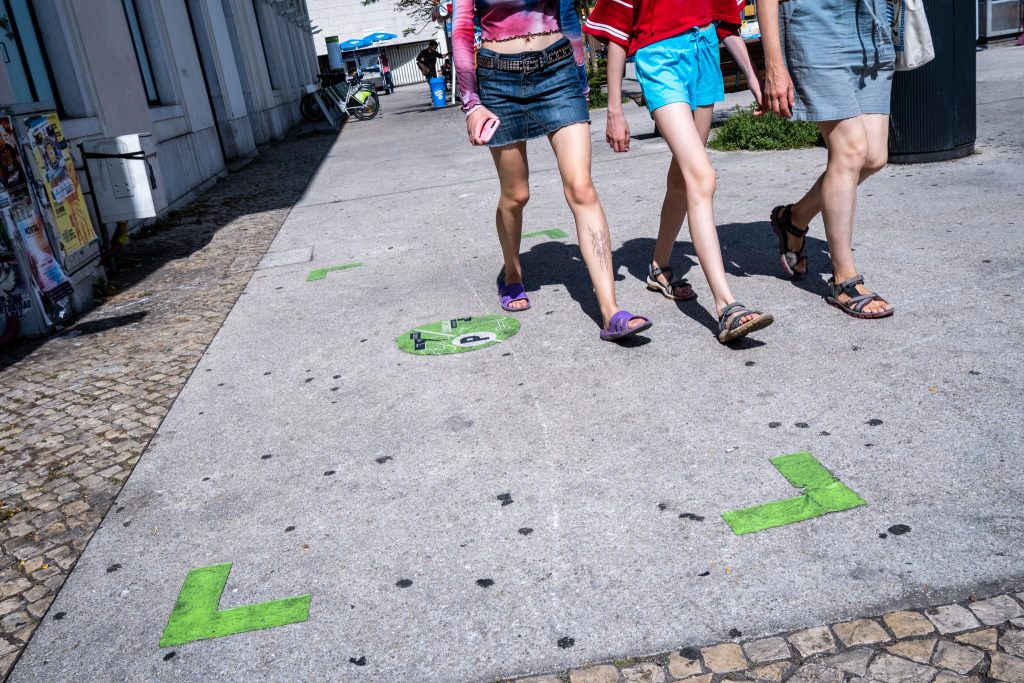
Several new dockless parking spots for scooters and shared bikes have been created in recent months in Lisbon on sidewalks. Although not yet active in the soft mobility shared applications (Bolt, Lime, Bird, etc), some of these new parking spots, created by the Lisbon Municipality, have been placed in the means of pedestrian circulation zonesviolating the rules of the municipality itself.
On the riverside axis of Avenida 24 de Julho, we found two examples. In a large pedestrian area near the Cais do Sodré transport interface - where, in 201535,500 people arrived by train and boat and, in 2017When the number of annual passengers on the subway was about 16 million, the city government marked a shared bike parking space (also called a "hotspot"). When this parking is activated in the private operators' apps, dockless scooters and bicycles will now block an obvious line of pedestrian circulation and desire.
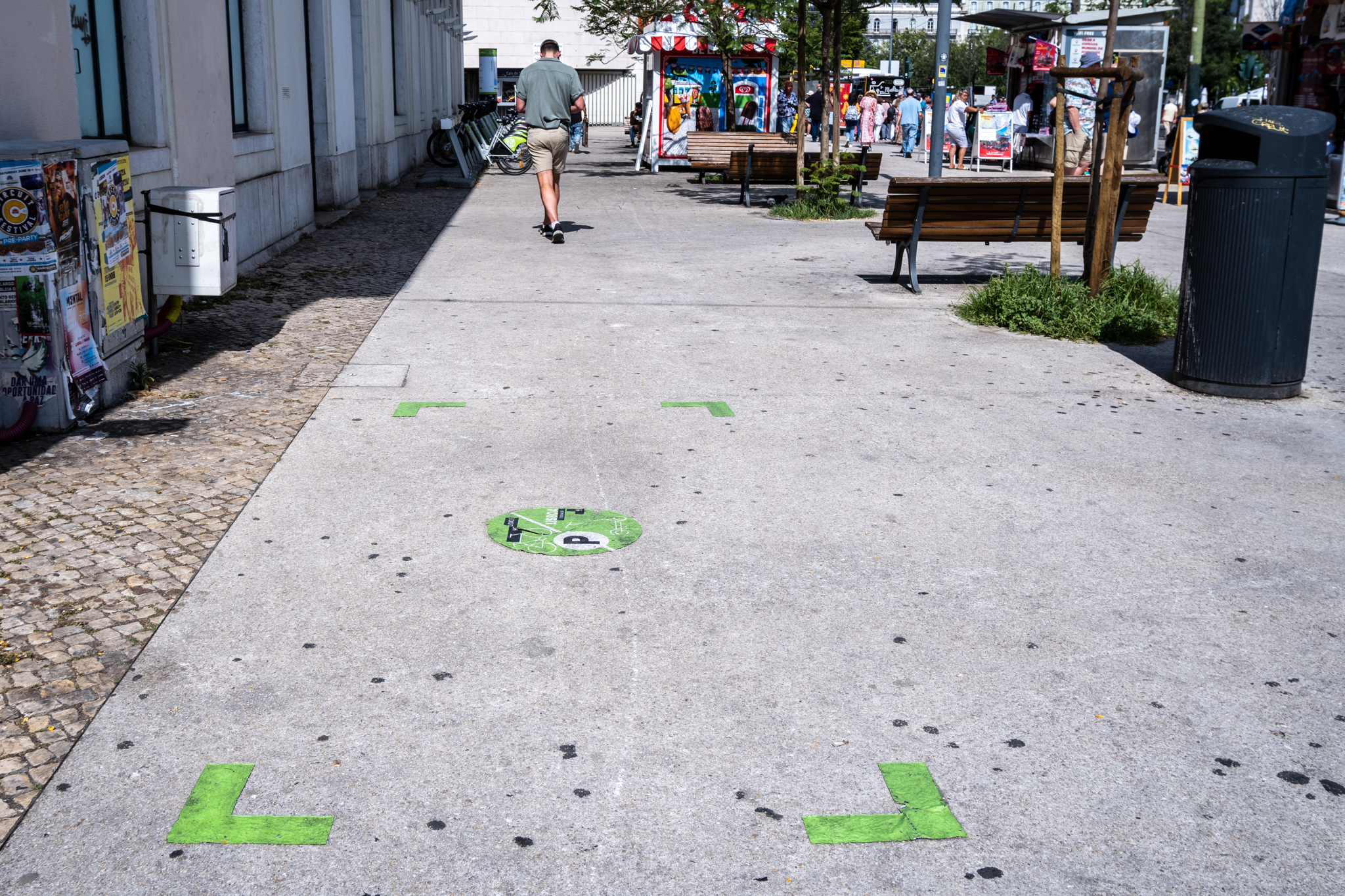
If this "hotspot" will already be an obstacle for anyone, it will be even more so for people with limited mobility, such as blind people. The parking lot under analysis could have been placed next to the train station building and the GIRA station there, or even installed in the axis of the remaining street furniture (garbage cans, benches and trees), so as to leave the main circulation area unobstructed.
An identical situation is found further on, arriving in Santos, on the wide sidewalk of Avenida 24 de Julho. With a bicycle parking lot right next door, which was installed during the 2017 redevelopment of that avenue in the alignment of trees and other obstacles, the City has now marked a stopping place for soft mobility vehicles outside this lineThis hotspot could have been placed in the same alignment as the trees, lighting and existing parking. Also still inactive, this "hotspot" could have been placed in the same alignment as the trees, lighting and existing parking.
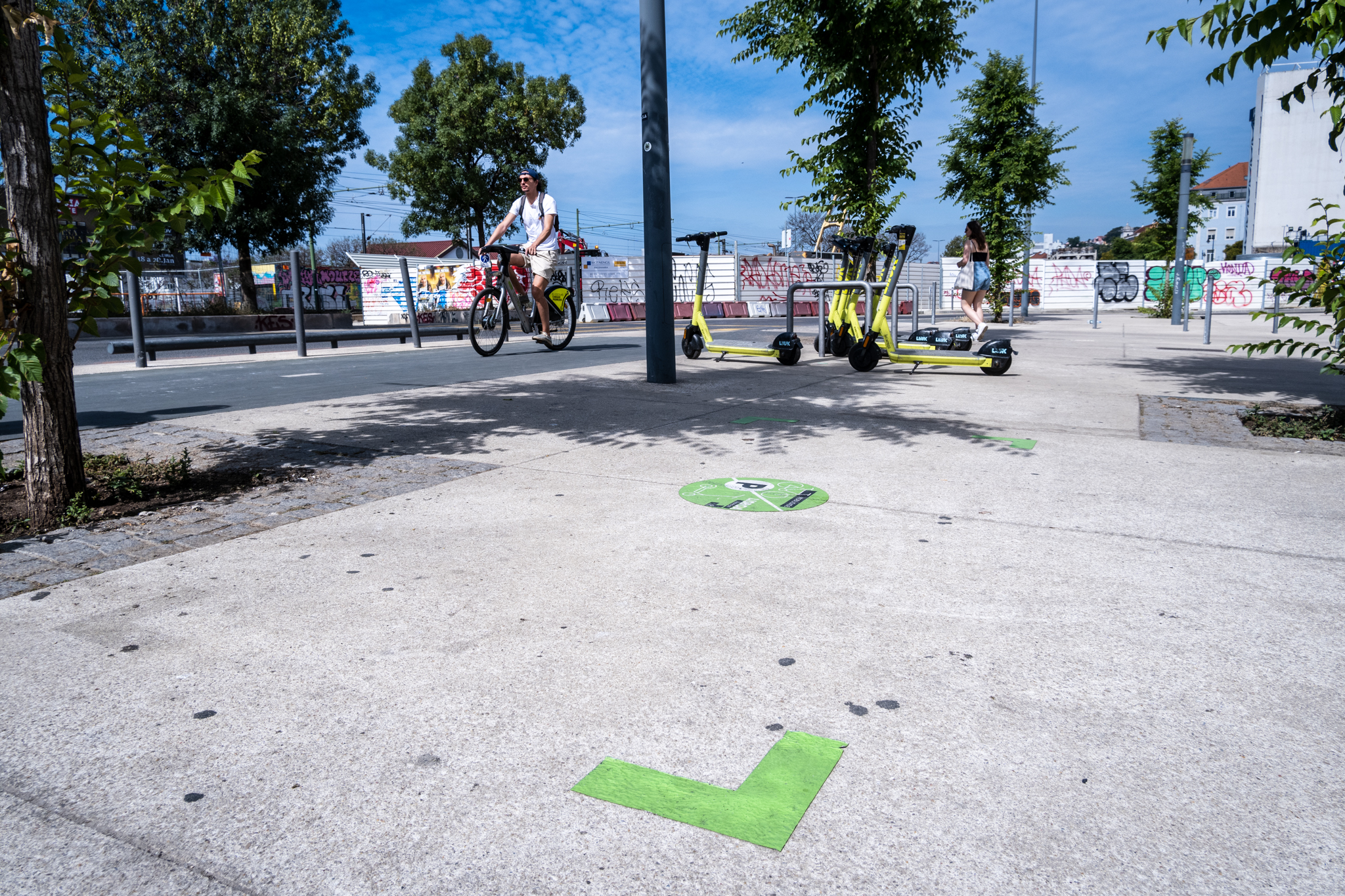
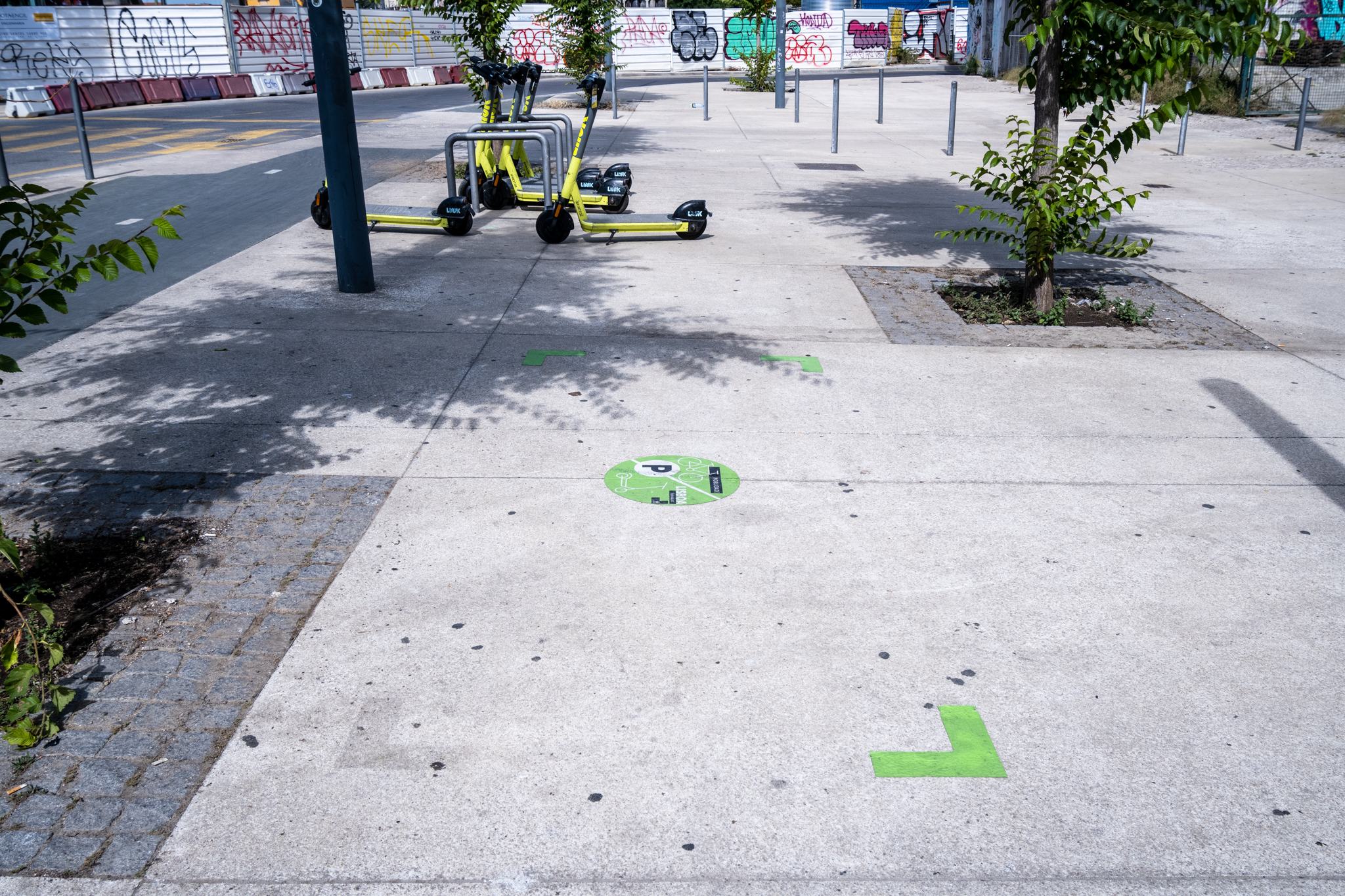
The Lisbon City Council started creating these dockless parking spots for scooters and shared bikes when, in 2018, it authorized the operation of these vehicles in the city. After a first generation of "hotspots", some of them eventually disappeared, also as a result of the disappearance of the vinyls that marked them. Others were converted into bicycle parking spaces, with the installation of sheffields.
Currently, users of dockless scooters and shared bikes can only stop at these "hotspots" and bike parking locations. Because of the new agreement with the operators and the future regulationIn the last few months, the municipality has been installing new sheffields for bicycles around the city, as well as marking new "hotspots", like the two we show in this article. All these new parking spaces occupy pedestrian areas, following the strategy of Moedas' executive to not removing more car parking spaces in favor of soft mobility. Some of these virtual docks for scooters, unlike the ones we showed, were placed in "dead" areas of sidewalk, next to other obstacles, not directly impeding pedestrian circulation.
Against the rules of public space
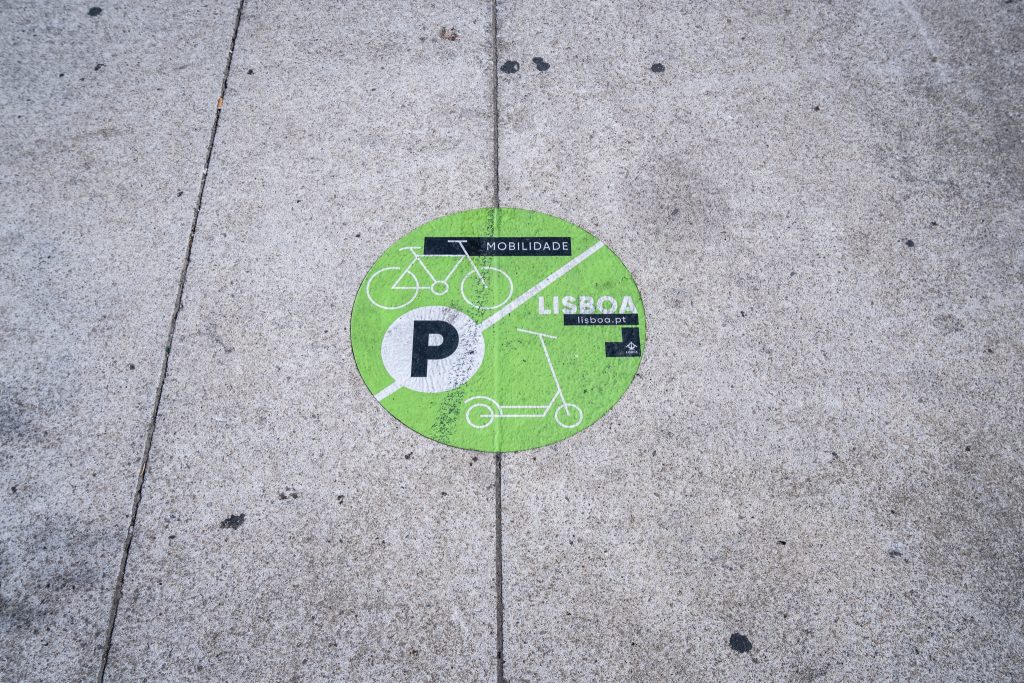
The installation of hotspots in the middle of the sidewalk, as we saw between Cais do Sodré and Santos, goes against the regulations of the Lisbon City Hall itself. O Public Space Manual, released in 2018, of course: "accessible pedestrian routes must have throughout their development a continuous circulation channel unobstructed by obstructions"and are considered obstructions "public lighting, vertical, luminous and informative signs, trees, boilers and raised flower boxes, street furniture and equipment, and all other elements that may block or hinder the circulation of people". It is therefore recommended, "as good practice" that these necessary infrastructures are concentrated "in a single track", "thus freeing the remaining promenade area from any obstacles".
Also the Lisbon Pedestrian Accessibility Planpublished in 2013 by the municipality, leaves no room for doubt: "The placement of obstacles must respect an alignment, preferably rectilinear, and must not impair either the continuity or the coherence of the pedestrian circulation channel (the pedestrian must not be forced into a 'slalom')."
Mário Alves, secretary-general of the International Federation of Pedestrians and an active advocate for the rights of those on foot, is concerned about the location of these new points for shared bicycles and scooters. "The savage occupation of sidewalks is an unacceptable problem that the city of Lisbon will have to solve and never aggravate - whether by cars, or more recently by shared scooters"perspective. "Creating micromobility hubs on the sidewalk is to make official and worsen an already very negative situation for pedestrians. It even fosters the mistaken idea that the parking and circulation of scooters is on the sidewalk.” To the expert, "putting even more 'junk' on already cramped sidewalk space is a nuisance to everyone and an unfair attack on the most vulnerable".
Unlike other cities, Lisbon has been creating spaces for shared bicycles in pedestrian spaces, while trying to solve the existing conflicts with the occupation of sidewalks by these dockless bicycles and scooters. In Porto, the so-called "sharing points" for this type of vehicles have been mostly installed in car parking spaces, which has allowed the circumscription of parking places by design (scooters are surrounded by kerbs, road and other cars) and keep well separated what is pedestrian from what is not.











